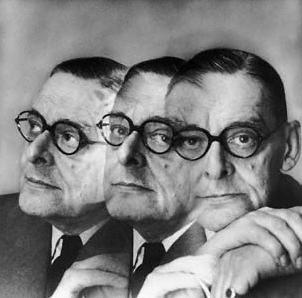 “Liberalism. . .tends to release energy rather than accumulate it, to relax rather than to fortify. It is a movement not so much defined by its end, as by its starting point; away from rather than toward, something definite. Our point of departure is more real to us than our destination; and the destination is likely to prevent a very different picture when arrived at, from the vaguer image formed in imagination. By destroying traditional social habits, by dissolving natural collective consciousness into individual constituents, by licensing the opinions of the most foolish, by substituting instruction for education, by encouraging cleverness rather than wisdom, the upstart rather than the qualified, liberalism can prepare the way for that which is its own negative: the artificial, mechanized or brutalized control which is a desperate remedy for its chaos.” T.S. Elliott
“Liberalism. . .tends to release energy rather than accumulate it, to relax rather than to fortify. It is a movement not so much defined by its end, as by its starting point; away from rather than toward, something definite. Our point of departure is more real to us than our destination; and the destination is likely to prevent a very different picture when arrived at, from the vaguer image formed in imagination. By destroying traditional social habits, by dissolving natural collective consciousness into individual constituents, by licensing the opinions of the most foolish, by substituting instruction for education, by encouraging cleverness rather than wisdom, the upstart rather than the qualified, liberalism can prepare the way for that which is its own negative: the artificial, mechanized or brutalized control which is a desperate remedy for its chaos.” T.S. Elliott
Liberalism is fundamentally negative in its teleology. Its inherent purpose is to liberate individuals from constraints of tradition, social structure and cultural context, from morals and values, from common sense and responsibility, from everything that once made our nation great. It has secularized society, dissolving many of its religious grounded structures and aims. It has done much to neutralize Christianity, but claims the labels “benign” and “tolerant” because it has nothing to put in its place. Society is rendered neutral, rather than Christian, precisely because the formal profession of Christianity is tolerated, while the structures and aims appropriate to a Christian society are not even considered. While a society has ceased to be Christian when religious practices have been abandoned, it also has ceased to be Christian when behavior ceases to be regulated by reference to Christian principle, and when in effect prosperity in this world for the individual or for the group has become he sole conscious aim.
The problem of leading a Christian life in a non-Christian society is a very different problem from that of the accommodation between an established Church and dissenters. It is not merely the problem of a minority in a society of individuals holding an alien belief. It is the problem constituted by our implication in a network of institutions from which we cannot disassociate ourselves, the operation of which appears no longer neutral, but non-Christian. As for the Christian who is not conscious of his dilemma, and that is the majority, he is becoming more and more de-Christianized by all sorts of unconscious pressures: paganism holds all the most valuable advertising space.
Without Christianity we might merely sink into an apathetic decline: without faith, and therefore without faith in ourselves, without a philosophy of life, either Christian or pagan;. . . Or, we might get a “totalitarian democracy” different but having much in common with other pagan societies, because we shall have changed step by step in order to keep pace with them: a state of affairs in which we shall have regimentation and conformity, without respect for the needs of the individual soul; the puritanism of a hygienic morality in the interest of efficiency; uniformity of opinion through propaganda and art only encouraged when it flatters the official doctrine of the time.
Today’s liberal culture is made up of structures entirely consistent with the totalitarian democracy. The model of proper behavior has become that of the moral slacker, who seeks to “hook up” or “get it on.” Our ideal cultural aim is to enjoy the fruits of material success without going to the trouble of working for them. And the descent of leisure into the mere satisfaction of appetites has brought with it no fewer social constraints than the older, more productive form of materialism. One who seeks to uphold or even argue for more elevated standards soon finds that one can indeed be punished for going against the prejudice of the day. In our increasingly euphemistic age, in which calculations of pleasure and pain determine “quality of life” and can determine the right to life itself, the ruling, permeating value goes by the name toleration, but amounts to an ideology of physical self-satisfaction and cultural disengagement entirely fitting a dying, neutral culture.
To those who can imagine and are therefore repelled by such a prospect, one can assert that the only possibility of control and balance is a religious control and balance, that the only hopeful course for a society which would thrive and continue its creative activity. . .is to become Christian.
Please take a few minutes to read T.S. Eliot’s “Christianity, Culture and the Problem of Establishment” an essay by Bruce Frohnen

